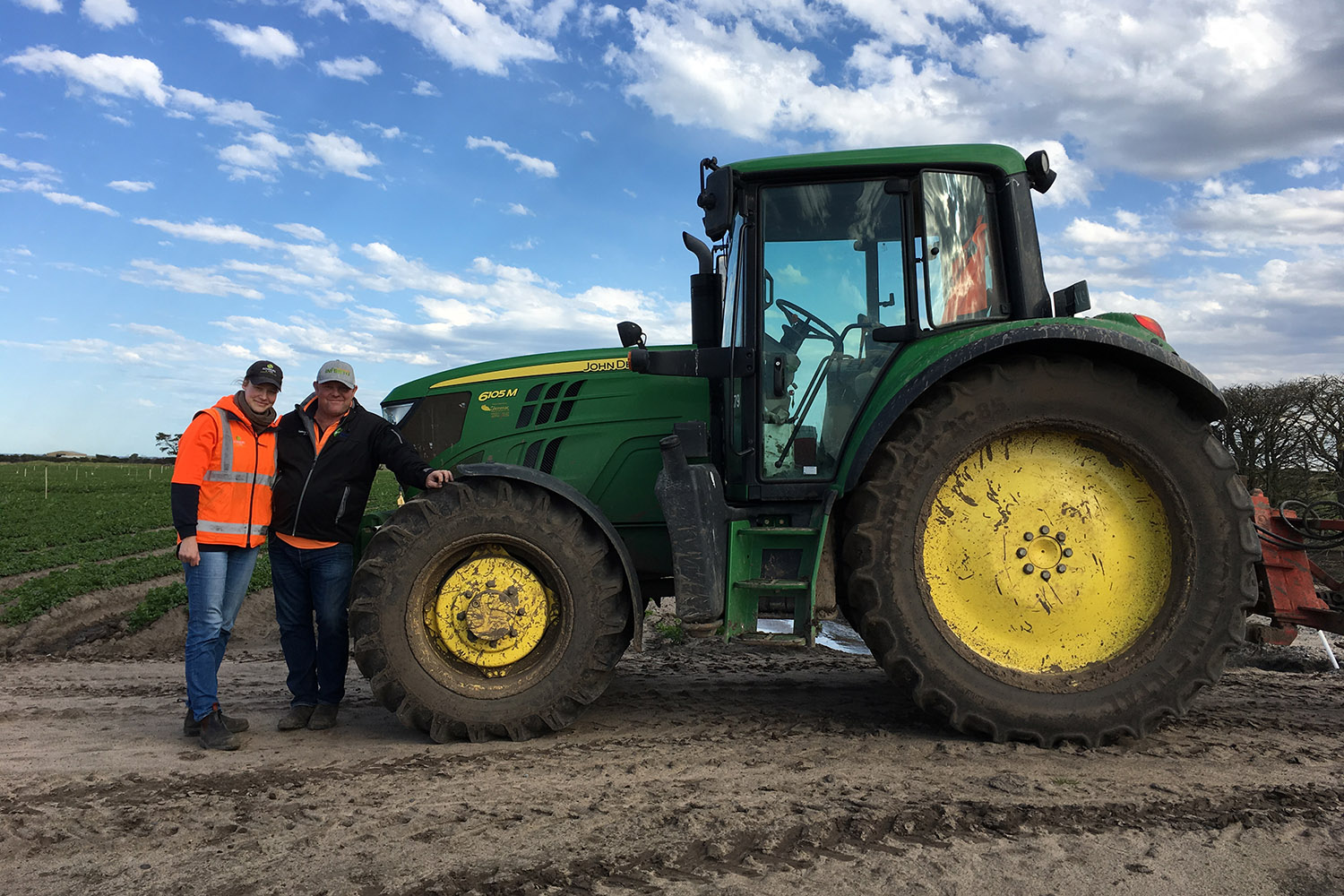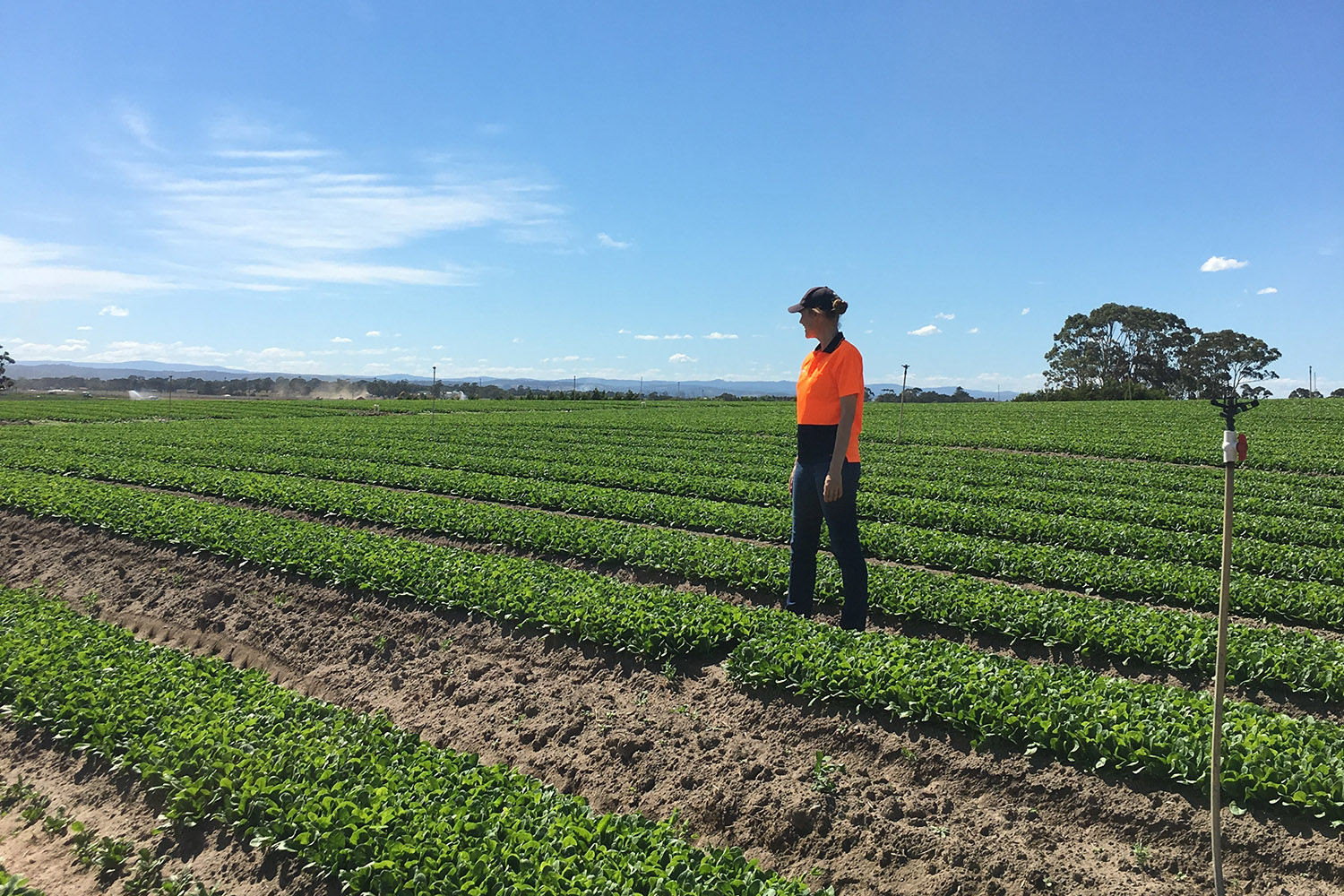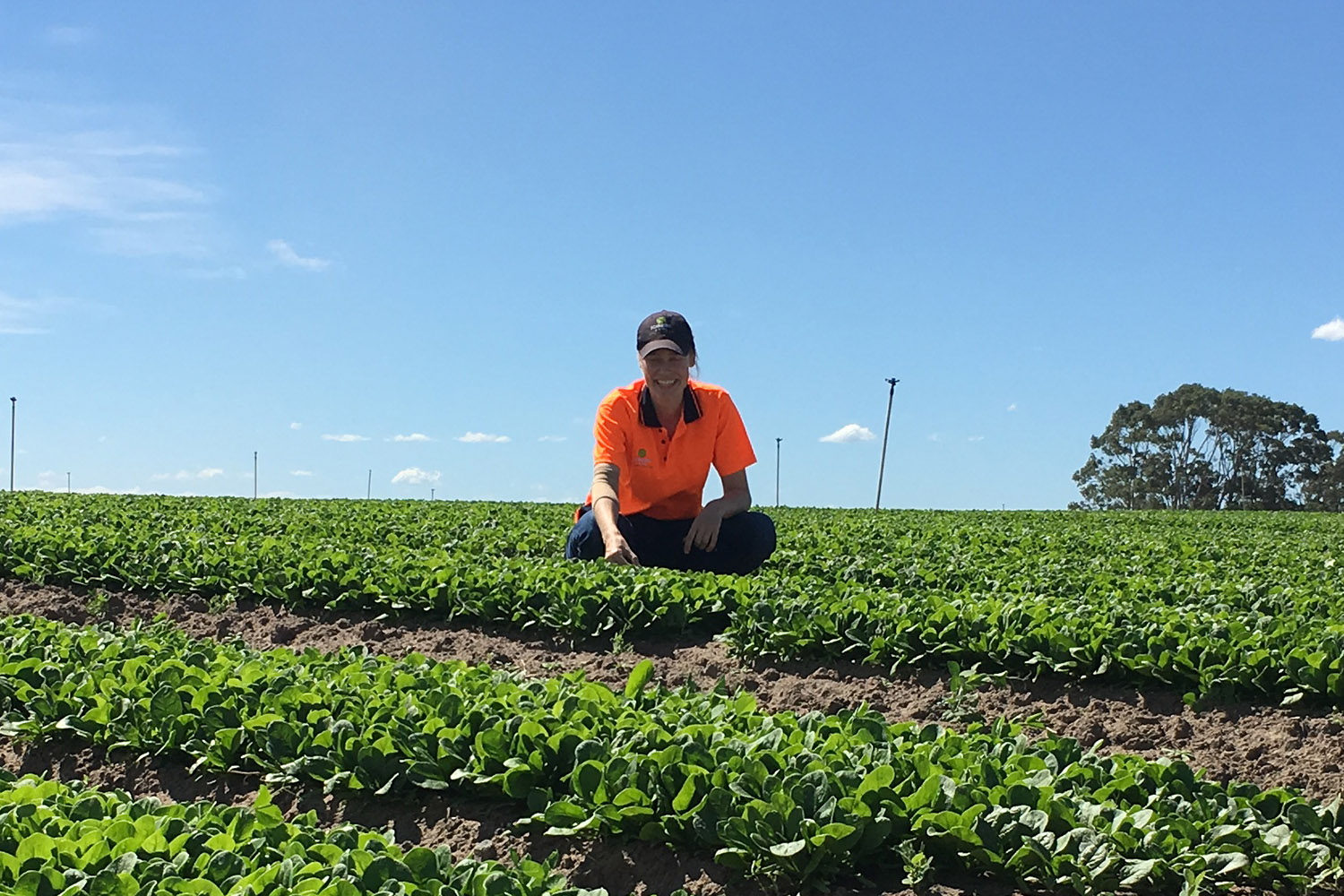Marie-Astrid Ottenhof: Advancing the food safety cause
Food safety and quality assurance are two of the most important factors to consider when growing vegetables for human consumption. In late 2017, we spoke to Schreurs & Sons Technical Director and 2017 Women in Horticulture award nominee Dr Marie-Astrid Ottenhof about the role she plays in the business, and the latest in sanitising technologies that have been implemented on the farm.
Fast facts
Name: Marie-Astrid Ottenhof
Location: Clyde, VIC
Works: Schreurs & Sons
Role: Technical Director
Schreurs & Sons is well-known for its innovation in the vegetable industry, with the third-generation farming business exporting its celery, leek and baby leaf lettuce varieties to the world as well as participating in many industry initiatives.
However, one of the secret weapons for the business is its staff – and Dr Marie-Astrid Ottenhof (Astrid) is no exception. Astrid joined Adam, Ben and Chris Schreurs’ growing operation in Clyde, Victoria, three years ago and hasn’t looked back since.
As Technical Director at Schreurs, Astrid looks after all quality assurance matters which includes setting up the business’ systems so that it complies with all the relevant regulatory and customer standards, and the product development that accompanies it.
With a background in food science, Astrid moved to Melbourne 13 years ago and started working with Salad Fresh (later known as PM Fresh), a company that processes vegetables and ready-to-eat salads. After stints at PM Fresh’s Brisbane and Sydney sites, Astrid returned to Melbourne and commenced her work at Schreurs.

Keeping produce clean
In July this year, Astrid presented at the Produce Marketing Association Australia-New Zealand (PMA A-NZ) Tech Event, which was held at the Melbourne Market for members throughout the produce supply chain.
Entitled New Sanitising Technologies – Without chemicals, Astrid discussed the implementation of Electrolysed Oxidised Water at Schreurs and the benefits it has brought to the organisation.
“Before I joined the company, they had already done a fair bit of work together with Dr Robert Premier (a Private Consultant for Global F.S. Pty Ltd), who’s a leader in this area. They were looking at oxidised water to help clean the vegetables,” she explained.
“The advantage of this system is that it’s basically chemical-free – the only thing we need to add to help speed up the reaction is a little bit of table salt.”
The system is conducted through electrolysis, which generates a healthy cocktail of different sanitising compounds.
“It’s a very effective way of reducing our bacterial count in the wash water, making sure that the product that comes out at the end is good to consume or process further,” Astrid said.
This system has the possibility of becoming standard practice worldwide.
“Globally, there are still a lot of growers using chlorine-based sanitisers. A lot of countries around the world, especially in Europe, are starting to ban chlorine-based sanitisers because they can create potentially carcinogenic compounds when they react with certain chemicals,” Astrid said.
“That’s the beauty of this oxidised water – even though we generate a little bit of chlorine, there are so many compounds that we also generate, which enable you to run at a much lower concentration compared to pure chlorine systems.”
"The horticulture industry has a lot to give women, and I think women can give a lot to the industry as well. The industry is changing rapidly – there’s never a dull moment which, from my point of view, is fantastic. I think you can learn a lot, and I’ve just been very lucky to become part of the Schreurs team."
Industry engagement
Astrid gained an insight into the growing and processing operations in the United States and Canada in October last year when she joined eight female vegetable growers on the 2016 Women’s Industry Leadership and Development Mission (VG15703), a strategic levy investment under the Hort Innovation Vegetable Fund.
While Astrid said it was a fantastic experience to see the different ways in which the vegetable facilities operate overseas, the highlight for her was learning about the other women on the mission.
“I found it fascinating to understand some of the hardships that they’ve gone through and the different issues that they face, especially since I don’t come from a growing background,” she said.
“I have a lot of respect for women in the industry and what they go through on a day-to-day basis to keep their businesses running.”

Inspiring others
As Technical Director at Schreurs, Astrid’s aim is to stay ahead of the game from a food safety perspective. She added that working in the horticulture industry is extremely rewarding.
“We’re constantly trying to look at ways to improve and be better than our competitors, and passing that food safety message on,” she said.
“The horticulture industry has a lot to give women, and I think women can give a lot to the industry as well. The industry is changing rapidly – there’s never a dull moment which, from my point of view, is fantastic.
“I think you can learn a lot, and I’ve just been very lucky to become part of the Schreurs team. Adam, Ben and Chris have been very supportive of what I want to do. I’m very fortunate in that respect.”
Astrid was also recognised for her work in the industry earlier this year after she received a Women in Horticulture award nomination at Hort Connections 2017.
“It’s recognition for the work and from a quality assurance point of view, trumpeting the food safety message,” she said.
“It was an honour to be recognised. I hope to inspire other women coming into the industry who hopefully take a keen interest in food safety and are able to pass that message on.”
This profile first appeared in the leading magazine for the Australian vegetable industry, Vegetables Australia. If you’d like to subscribe to receive a new edition of Vegetables Australia in your mailbox every two months, use our online subscription form!
Photography credit: Marie-Astrid Ottenhof

